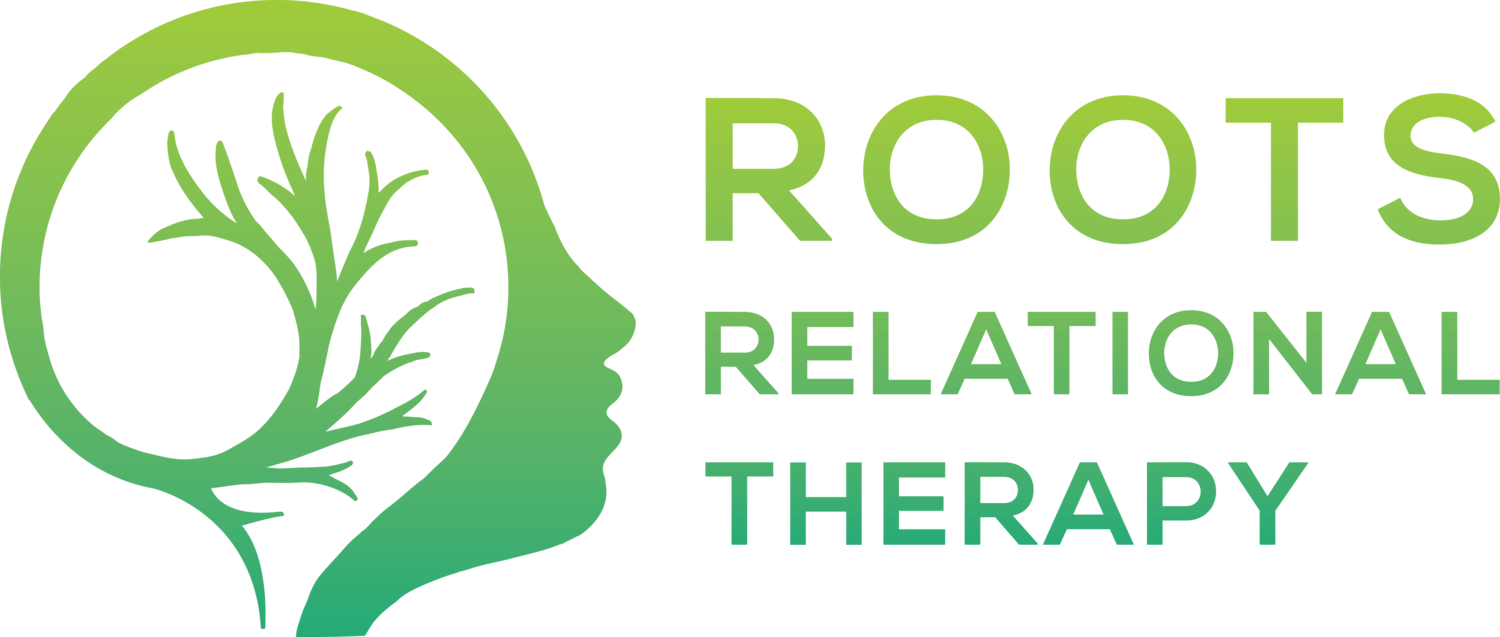How to Hack Mental Health Symptoms
People come to therapy because they are experiencing unpleasant symptoms. In general, symptoms can be:
Uncomfortable emotions or thoughts
A pattern of coping mechanisms
Or trauma responses
The expectation in therapy is the greater understanding we have of ourselves and our symptoms, the more we can process through them, and then the symptoms will eventually go away forever. Right?
…yes and no…
Yes, when therapy is successful, symptoms become less frequent and less intense. But they don’t necessarily vanish forever. And that’s not necessarily always a bad thing.
Each Symptom has a Function
At some point, we developed the symptom in order adapt to life or to protect our self. Symptoms distract or cover up the thing we subconsciously view as even scarier than the symptom itself… Like the fear, anticipation or belief that we are unlovable, that we are incompetent, or that we are out of control of what might happen.
Symptoms coming up again as you progress in therapy, is NOT a sign of regression. Rather, consider them an invitation, or a reminder to check-in with yourself and your inner experience.
This symptom showed up and stood in front of you, because a subconscious part of you thought it was needed.
Approach Your Symptoms with Compassion and Curiosity
Notice the symptomatic urge, and ask it directly: What are you trying to help me with?
Is there a vulnerable emotion that you’re struggling to communicate?
Is there an unmet need?
Is there an anticipation of something that scares you?
Is there an intense burden of shame?
Is there a sense of being overwhelmed and uncertain about the future?
The process of meeting your symptoms with compassion and curiosity, is how you separate your knee-jerk, reactive or “survival self” away from your true self.
However, separating the two can be really tricky for some people. Some of us have had to cope and survive for so long, we can’t tell the difference between our “survival self” and our true self.
We wear our abnormal coping skills as a badge of honor or a security blanket, and own them as a crucial part of our identity. It’s what makes us safe and resilient, right? Who am I, if not that?
I’m here to remind you…
YOU are NOT your symptoms, coping skills, or trauma responses!
Yes, your symptoms and survival self have helped you through some situations you didn’t know how else to get through at the time. That’s an important job! But it is NOT who you are.
You are a human person that has a heart, and feelings, and thoughts and needs. You are a person who wants to connect. You have interests and desires that you develop and contribute value to others with. You are a human being that seeks to be embraced and loved.
Symptoms are a way to temporarily avoid, distract from, or express the fear of losing all that…
Symptoms Are Just Signals
Like the fire alarm versus the actual fire. Similar to fire alarms, symptoms are loud, they feel urgent and intense! We just want to make it stop...
However, acknowledging, honoring, and tending to your inner experience is how you reconnect with your true self.
When you know which unmet need, vulnerable emotion, fear, or whatever is going on, and call it directly by name, you break the pattern of unconsciously falling into the symptomatic cycle again.
When you pause and reflect on what you need, YOU get to decide how to meet that need. Not your survival self just coping through life, being messy – YOUR TRUE SELF knows what you need.
You stop having “symptoms”, and you start having a sense of self-alignment. When the alarm goes off, and your survival self springs into action via symptoms, you’re able to step in front of your survival self, and say “thank you sweetie, but I’ve got this one…”
WAY Easier said than done! But so so worth it.
Here’s a tip: When you are mentally spiraling, full of anxiety or stress - get out of your head and into your body. When we are mentally and emotionally overwhelmed, we lose access to the logical part of our brain. Therefore, you can’t think yourself out of panic.
It doesn’t have to be a complicated gym workout; go for a walk, roll out your neck and joints, take deep breaths, change your scenery, listen to music with a different vibe, etc. THEN when you have metabolized the stress and fear out of your body, you can reflect on what your symptoms were trying to signal to you.
Where Can I Find More Help?
If you’re looking for a space to get a deep-dive understanding of your symptoms and reconnect with your true self — therapy is a great place to start! You can start researching right now by clicking around my website, or you can dive right in — contact me for a free 15 minute consultation, where we can talk about what pursuing therapy together might look like.
Maybe you aren’t fully ready for therapy yet — That’s okay too! That’s why I’ve written a book that is a fraction of the price of one therapy session! It’s called: The Root of Relationships: How to Know Yourself, Understand Others, and Create the Relationships You Want. I’ve already spent the money and time to get advanced education and training in Couples Therapy, Psychology, Sociology, and Psychotherapy, packed some of the best introductory stuff into one place, and made it easy to understand and digest. Sign up with your email on my website by going to the “Book” tab, and download the accompanying free workbook!
Not an E-book person? Subscribe to my YouTube Channel, Tips from a Therapist, where I offer some of my best tips on how to improve your relationship with yourself and other people.
If you found this helpful, share it with a friend!
The more you know, the more you grow!
